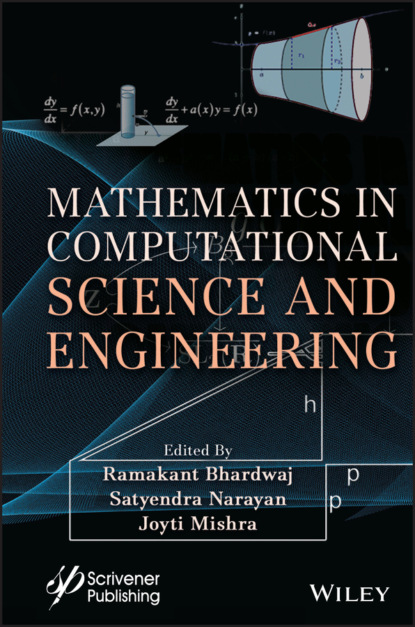related with the Expected Inventory scheme is TCU(Y) = 11.73.
1.4.2 Sensitivity Analysis
The EOQ model of Inventory Management takes over the day-by-day utilization of Inventories, the optimum estimation of the orders amount y is controlled by minimizing TCU(Y).
The study effects of change in the value of the system are displayed from Table 1.4 to Table 1.9. This is
Important Inventory Parameters (Y ∗, T0, N, LE, TCU(Y), LEd) are classified.
By Parameters 1: The set-up cost increases,
By Parameters 2: The set-up cost increases,
By Parameters 3: The set-up expense increases,
By Parameters 4: The set-up cost expands,
This Y* is not Trapezoidal Rule and hence it is not formed a Brownian movement, but remaining Parameters T0, N, LE, LEd, TCU(Y) is a Trapezoidal Rule. It is framed a Brownian Movement.
At last implementing Sensitivity assessment on the decision factors through changing the Inventory parameters (Y ∗, T0, N, LE, LEd, TCU(Y). In sensitivity investigation make fluctuate to the factors built into that Inventory to provide the Brownian movement. This method is generally sensitivity to change around the EOQ.
1.4.3 Brownian Path in Hausdorff Dimension
Brownian direction is a-Holder a. s. for all
(1.25)
For every h most definitely. The decided of such t offer degree zero. This is the moderate improvement that is locally possible. Having confirmed that Brownian direction are extremely popular [19]. Make see why they are “peculiar”. One rationalization is that the strategies of Brownian movement don’t get any time of monotonicity. Indeed, if [a,b] is an time of monotonicity, at that point splitting it into an equivalent sub-period [ai, ai+1] every expansion B(ai) – B(ai+1) should have a similar indication. This has probability 2.2−n and taking n→ ∞ indicates that the probability that [a, b] is a time of monotonicity ought to be [13]. Let a countable association prove that there may be no gap of monotonicity with rational that Brownian movement solution, however each monotone. Period could have a monotone logical alternate period that Brownian movement is b -Holder for any
1.4.4 The Hausdorff Measure
The Hausdorff degree of a self-affine set ought be either 0 or ∞. Assume the number set d has non-uniform parallel fibers and let γ = dim (K (d), then Hγ (K(d)) = ∞.
In addition, K (d) is not generally s-bounded for Hγ. Since the intersections of K (d) with the d square shapes of the original are interprets of each other and t. The Hausdorff measure Hγ is interpretation invariant, its constraint to K (d) should distribute all these square shapes a comparative measure. Note the assessment with the self-similar sets which have effective and definite Hausdorff estimate in their measurements, increasingly exact data can be communicated utilizing measure capacities.
(1.26)
1.4.5 Levy Processes
An alternative generalization of Brownian movement gives the stable technique presented by Levy
A stochastic system
1 (i) Increments X(T + H) – X(T) are stationary.
2 (ii) X has Independent additions.
3 (iii) X has stationary increments that is, for all 0 ≤ S < T, coincides with the law the law XT−S.
4 (iv) X is stochastically continuous, that is,
Levy manner able to choose a completely unique change whose paths are right non-stop and with left limits. This by using the Brownian motion. Obviously, condition (iii) and (iv) strongly restrict the possible regulation of the technique X and its circle of relatives of finite dimensions distributions. A Levy Process X is determined through using the regulation of XT, however this regulation cannot be arbitrary. It must be infinitely Processes with stationary independent increments called Levy processes.
Levy processes and Hausdorff measure pertinent for all the three techniques are,
(i). presumptions of the EOQ; (ii) Inventory Control in Instantaneous demand Method under development of the stock; (iii) Exemplary EOQ in Inventory. It is depending on the outer measure. This is obtained from Brownian path. Hence it is known as Fractals.
1.5 Discussion
Without limitations the study is vast. The observation made a major contribution for organization technology and operations management to utilize the Inventory control technique attention on the possibility of optimising the company Inventory to manage method technique in an organization. Thereby creating awareness of the opportunity of optimising the company’s Inventory cost for better profitability. By so doing there is realistic signification of the EOQ.
This approach represents a variation from the tradition in EOQ model, where the inventory level change over time an average Inventory can be calculated on basis of physical space limitations which is related to tangible goods, thus requiring the definition of a reorder parameter. EOQ selection duties taking into account: i.e., delivery costs generally based on purchased rate that do not depend on the scale of the party ii. Prices for the maintenance of stocks are proportional to their size, which were before described as assumptions and boundaries in existing
